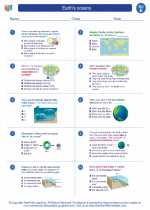Insulator
An insulator is a material that does not conduct electricity or heat easily. This means that it does not allow electric current or heat to flow through it easily. Insulators are used to prevent the flow of electricity or heat, and they are important in various applications such as electrical wiring, construction, and even in clothing materials.
Examples of Insulators:
Properties of Insulators:
Insulators have certain properties that make them suitable for their intended uses:
- High resistance: Insulators have high electrical resistance, meaning they impede the flow of electric current.
- Low thermal conductivity: Insulators have low thermal conductivity, so they do not allow heat to pass through easily.
- Non-magnetic: Most insulators are non-magnetic, meaning they do not interact with magnetic fields.
- Dielectric properties: Insulators can be used as dielectric materials in capacitors, where they can store electrical energy.
Uses of Insulators:
Insulators have a wide range of uses in various industries and everyday life, including:
- Insulating electrical wires to prevent electric shocks and short circuits
- Insulating buildings to maintain comfortable indoor temperatures
- Insulating electronic devices to protect them from static electricity and electromagnetic interference
- Insulating cookware to prevent heat from escaping
- Insulating clothing to retain body heat in cold environments
Study Guide:
To understand insulators better, it's important to study the following aspects:
- Compare the electrical conductivity of insulators with conductors and semiconductors.
- Investigate the factors that affect the thermal conductivity of insulating materials.
- Explore the uses of insulators in different industries and their significance in preventing accidents and improving energy efficiency.
- Examine the role of insulators in protecting electronic devices and transmission lines from environmental effects.
Understanding insulators and their properties is essential for various scientific and engineering applications, and it can also help in making informed choices regarding materials in everyday life.
[Insulator] Related Worksheets and Study Guides:
.◂Science Worksheets and Study Guides Fifth Grade. Earth's oceans

 Worksheet/Answer key
Worksheet/Answer key
 Worksheet/Answer key
Worksheet/Answer key
 Worksheet/Answer key
Worksheet/Answer key
 Vocabulary/Answer key
Vocabulary/Answer key
 Vocabulary/Answer key
Vocabulary/Answer key
